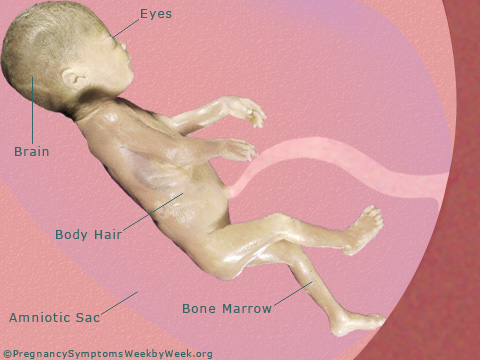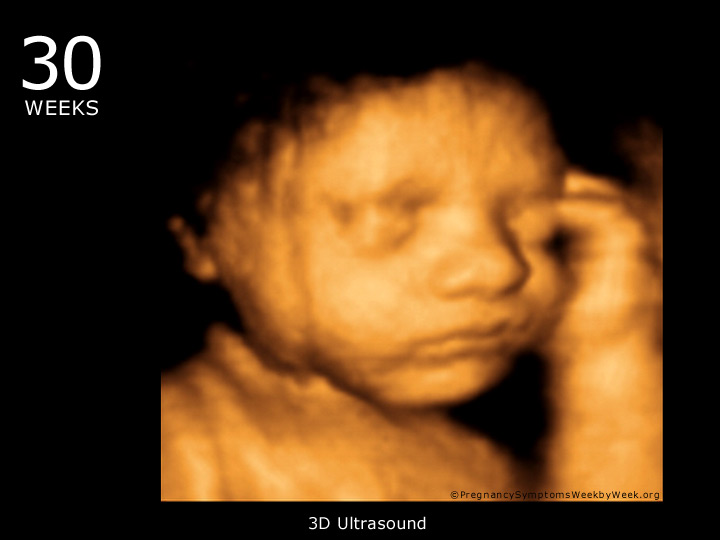30 Weeks Pregnant ─ Pregnancy Symptoms
The 30th Week of Your Pregnancy is a Good Time to Plan How You Would Like to Manage Your Labor and Birth
76 DAYS TO GO. . .
COMMON PREGNANCY SYMPTOMS FOR WEEK 30
The sensation to start preparing your home for your new arrival is natural and will continue to grow as you approach your due date. Nest-building may cause you to feel overwhelmed with the urge to arrange, decorate and clean. Although it is a good idea to prepare for your new arrival, don't overwhelm yourself. If you feel tired throughout the day, take time to relax and rest.


Fetus Size
Your baby is about the size of cauliflower during week 30.
LENGTH: 15.89 in / 40.4 cm
WEIGHT: 2.94 lb / 1333.6 g
View Weekly Growth Chart >>
WHAT'S GOING ON INSIDE?
The Eyes are now able to distinguish between light and dark.
The Brain is developing into separate areas that will eventually control specific functions.
The Body Hair that covers your baby’s body (lanugo) is beginning to disappear.
The Bone Marrow is increasing red blood cell development.
The Amniotic Sac has stopped growing and the amniotic fluid will start to decrease as your baby fills out your uterus.
At this stage you will start to have more prenatal appointments. At every visit you will be asked to provide a urine sample so it can be checked for protein. Having low amounts of protein in your urine (low proteinuria) is common and may just mean that your kidneys are working harder now that you're pregnant. High levels of protein in your urine can be a sign of a urinary tract infection (UTI), kidney damage, or other disorders. If you have protein in your urine, but your blood pressure is normal, your sample will be sent to the lab for a culture to see whether you have a UTI.Your blood volume will increase about 25% at this stage. This increase of blood causes your heart to pump faster. Consequently you may develop a rosy glow and sweat a bit more than normal. During this time there is also more fluid circulating through your body which will make your body tissues thicken. Common areas that may feel swollen or puffy are: ankles, legs, fingers, neck and face.
<< Week 29 - PREVIOUS | Week 30 | NEXT - Week 31 >>


